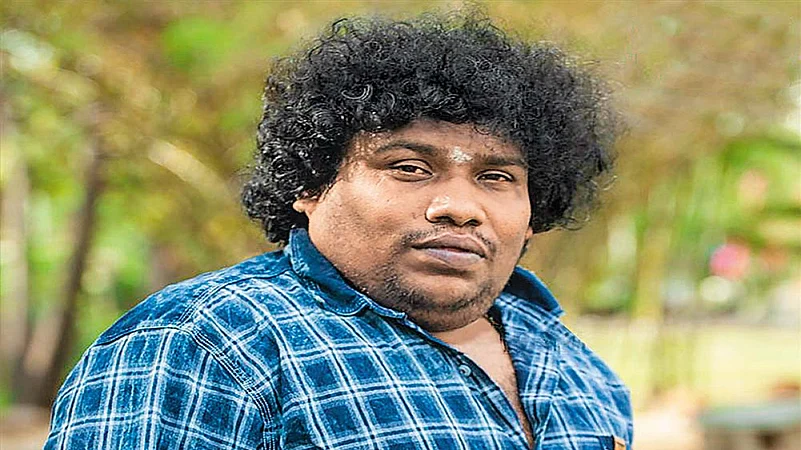A thin, blurred line separates the real from the reel in Tamil Nadu—where the two OCDs, not necessarily in this order, are politics and movies. So, when the state was obsessed with five contestants slugging it out for the top job in the assembly elections, voters were introduced to another VIP. A fellow voter with an unlikely name: Nelson Mandela. But unlike the South African icon, this Mandela is short and wears frizzy Afro locks. He remains a ‘nobody’ till his one vote becomes crucial to decide a village election. Opened on Netflix a day before the state voted for a new government on April 6, the eponymous movie Mandela packs a timely satirical punch at the state’s sordid election practices— overblown promises, freebies, caste-based wooing and shameless bribery of voters, which leads to auctioning of the voter to the highest bidder. “We are only auctioning his vote, not the man” justifies a villager in a scene when the auctioneer stands flabbergasted at the turn of events.
A Mandela To Call Our Election Bluff
A Tamil comedian and a young director hold the mirror to our democratic exercise

Directed deftly by debutant Mad-onne Ashwin, the film’s rollicking journey rests squarely on the broad shoulders of Tamil cinema’s latest comic rage—Yogi Babu. Blessed with unconventional looks that has often led to body shaming in most of his previous movies, Babu plays the village barber and helper—an inconsequential addendum perched under a banyan tree—the only mid-ground in a village geographically and emotionally split between two castes. Babu carries the self-effacing role effortlessly as he narrates to the village post-woman how neither he nor any villager remembers his actual name (barring his nicknames) while attempting to open a bank account. She christens him Nelson Mandela on seeing a stamp of the African leader under which name he gets a voter ID.
With the panchayat election evenly split between two rival candidates of either communities Mandela’s vote can break the tie. As both sides woo him with goodies, including a new saloon, Mandela gets tempted, but changes his heart following physical threats. He leverages the power of the-vote-that-counts to roll out all the basic amenities that the village had been promised but never got. On voting day, he brushes aside the two contestants: “My vote, my decision.”
The movie ends without showing which way his vote went. But by then the village had changed—caste differences are sunk as both sides rally behind Mandela to protect him from contract killers of the two candidates. “We show how the village is the ultimate winner and not any of the two candidates. That would have watered down the climax, especially after the villagers had rediscovered their moral high ground by returning the bribe money to the candidates,” explains Ashwin, a software engineer who became a film director (Southern cinema is full of them).
Though held aloft by Babu, 35, the film is peopled with relatable characters like Mandela’s sidekick, Girdha aka Sideburns, the warring candidates and their lackeys, the sympathetic post-woman et al. The unassuming Babu—even in real life he is known to play cricket with villagers during shooting breaks—walks away with the acting honours. A grimace here, a shrug there and the naiveté that punctuates Mandela’s persona is all Babu. “What is my need? That all of you should grow enough hair for me to cut regularly,” he answers when the two candidates ask him his needs.? ?
Often reduced to a caricature in most films where he has appeared as a comedian, Babu showed glimpses of his talent in Pariyerum Perumal. In Mandela, he reaches new heights. You cannot but applaud him when he mockingly replies “For MGR” when the two candidates confront him about who he voted. “This movie was a completely new experience for me as an actor. As a comedian I am used to giving counter-dialogues that come naturally to me. Even in Mandela, I would call Ashwin aside and suggest a one-line comeback. And he would patiently remind me that it doesn’t suit my character or the scene. I would ask him to fit it into another character,” Babu recalls. Home work before the shooting? He says he hated that in school and scoffs: “Catch me doing that now!” Babu credits the director for the film’s success, and Ashwin repays the compliment, saying no one but Babu could have essayed the role with such “understated panache”. The oxymoron works—like Mandela.

























